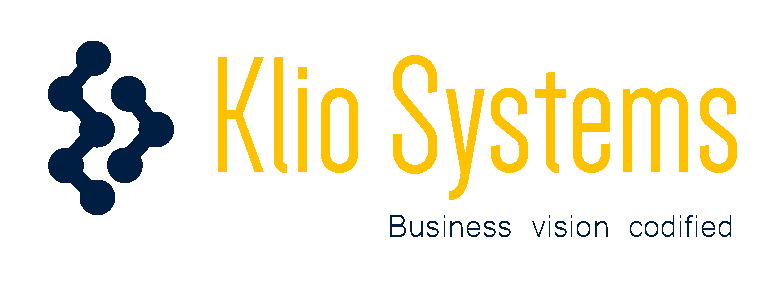This is a four part article series where I will examine some of the advantages of hosting Sage 300 in the cloud. In the first article, I will review hosting options . In the second article, I will explain advantages of cloud hosting. In the third article, I will go through a example of a hypothetical company’s migration path to the cloud. In the fourth article, I will examine Sage 300 hosting is right for your company.
Let’s cover options you have to host Sage 300. I have written these articles with a non-technical audience in mind. I will take the time to explain each of the options available in relatable terms.
So, you are an existing Sage 300 customer and are reading this because you are getting ready to retire old infrastructure. You want to know your options. Or you are a prospective customer and want to know what is the best option to get started.
If, after reading this article series, you are still not sure how to proceed or just want us to take care of things for you, we are here.
Where should you host?
Sage 300 hosting requires a complex environment.. For instance, it will require some or all the following:
- Reliably store and backup your data
- Allow users to connect through two different options (desktop & web screens)
- Connect with third party entities (EDI, E-Commerce, AR/AP Automation, Dashboards, Payment Gateways etc)
Therefore, hosting Sage 300 can be cumbersome and typically requires professional help. You can host Sage 300 in three different environments. Each of these options has distinct advantages:
- Self host on premise
- Private cloud
- Public cloud
The choice may be different from one company to another. It depends on various factors. Here are a few factors that can lead to success or failure:
- Infrastructure capacilty
- Internal team skillset and experience
- Long term goals of the company
Self Hosted Sage 300
As the name suggests, some customers that have the required infrastructure investment and technical know how choose to host their Sage 300 environment internally or in a co-located data center. The two distinct advantages of this approach are cost & control. However, both these advantages can become disadvantages rapidly. Lets review:
Cost:
If your demand on the infrastructure (number of users, what they do and how they do it) remains predictable and mostly unchanged year to year, hosting the environment on your own network will be cheaper. After all, you are not paying for the private or public cloud vendor’s profit. But, if your business grows or shrinks during the amortized life of your infrastructure investment, hosting Sage 300 in your environment can rapidly become a disadvantage. You will end up with a system too large or too small for your needs.
Control:
Because you host the environment, you control what happens to it. You can decide on how frequently to upgrade the environment, who can connect to it, what systems your system talks to. You have the ultimate control of your environment. Sure, you have the option to hire companies like us to help you manage it but ultimately, you retain all control.
Private Cloud Hosted Sage 300
Private cloud vendors are a good option where a company is cost concious but does not have clarity about what demand that will put on their Sage 300 hosting environment. With a private cloud vendor, you typically purchase a fixed infrastructure capacity but can then divvy up that capacity between various applications. Additionally, some private cloud vendors do purchase excess capacity back at a discounted price if you want to reduce your infrastructure commitment.
The advantage of a private cloud over a self hosted environment typically includes the below:
- Conditioned power, fire and other mitigation systems with higher reliability.
- Physical security and no direct access to your infrastructure.
- Better internet connectivity.
However, with private cloud vendors, there are some features that arent as widely available as the public cloud vendors. Typical private cloud vendors may have limited data centers that limit your ability to take backups and restore your environment in a completely different geographic region. A good example of when you may need this ability includes hurricanes & flooding that can knock out infrastructure of an entire city.
Public Cloud Hosted Sage 300
Public cloud hosting option provides the most flexible and featured hosting of all the options we have discussed. Typical public cloud vendors (read Microsoft Azure, Amazon AWS, Google Cloud Platform) have large number of data centers located across the world. Here are some of the advantages they have over the other two options:
Scale Infrastructure
Increasing or decreasing the size of your environment is a probably the easiest to do with public cloud providers. Each provider sells capacity reservations at steep discounts to their ad-hoc prices. They allow customers to bring their own licenses and they allow you to resell your reservations back to the provider or in some instances a market place if your needs change. Public cloud providers compete well in price of these reservations and are only marginally higher than the other two options.
Geo Redunduncy
Because public cloud providers have large number of data centers spanning the world, they provide the ability to easily backup your data and infrastructure across geographic zones. While this ability comes at a price, the implementation of such a geo redundunt infrastructure is much easier to implement than the other two options.
Comparing All Three
Lets compare all three of these options based on various criteria:
| Self Hosting | Private Cloud Hosting | Public Cloud Hosting | Notes | |
| Cost | Low | Medium | High | |
| Control | High | Medium | Low | |
| Ability To Scale | Low | Medium | High | |
| Geo Redunduncy | Low/None | Low/None | High | |
| Technical Skill (Administration) | High | Medium | Low |
Next…
Now that you various options for hosted sage 300, In the next one article, I will go over the advantages of public cloud hosting.
Klio Systems, Inc. is a technology company focused on software engineering, digital presence, managed IT services,security practices, erp consulting company.

